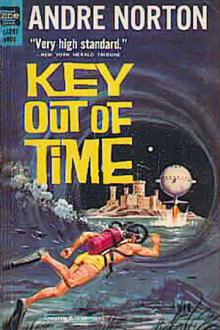Sanders of the River by Edgar Wallace (novels to read in english .TXT) 📗

- Author: Edgar Wallace
Book online «Sanders of the River by Edgar Wallace (novels to read in english .TXT) 📗». Author Edgar Wallace
He stood on the deck coatless, signalling with his raised fingers to the man at the wheel.
"Phew!" An arrow was shivering in the wooden deck-house. He pulled it out and examined its hammered steel point carefully, then he threw it overboard.
"Bang!"
A puff of smoke from the veiling foliage—a bullet splintered the back of his deck-chair.
He reached down and took up a rifle, noticed the drift of the smoke and took careful aim.
"Bang!"
There was no sign to show where the bullet struck, and the only sound that came back was the echo and the shrill swish of it as it lashed its way through the green bushes.
There was no more shooting.
"Puck-apuck-puck-apuck-puck," went the stern wheel slowly, and the bows of the Zaire clove the calm waters and left a fan of foam behind. Before the village was in view six war canoes, paddling abreast, came out to meet the Commissioner. He rang the engines to "Stop," and as the noise of them died away he could hear in the still air the beating of drums; through his glasses he saw fantastically-painted bodies, also a head stuck upon a spear.
There had been a trader named Ogilvie in this part of the world, a mild, uncleanly man who sold cloth and bought wild rubber.
"Five hundred yards," said Sanders, and Sergeant Abiboo, fiddling with the grip of the port Maxim, gave the cartridge belt a little pull, swung the muzzle forward, and looked earnestly along the sights. At the same time the Houssa corporal, who stood by the tripod of the starboard gun, sat down on the little saddle seat of it with his thumb on the control.
There came a spurt of smoke from the middle canoe; the bullet fell short.
"Ogilvie, my man," soliloquised Sanders, "if you are alive—which I am sure you are not—you will explain to me the presence of these Schneiders."
Nearer came the canoes, the paddle plunging rhythmically, a low, fierce drone of song accompanying the movement.
"Four hundred yards," said Sanders, and the men at the Maxims readjusted the sights.
"The two middle canoes," said Sanders. "Fire!"
A second pause.
"Ha, ha, ha, ha, ha, ha, ha, ha!" laughed the guns sardonically.
Sanders watched the havoc through his glasses.
"The other canoes," he said briefly.
"Ha, ha, ha, ha, ha, ha, ha, ha!"
This gunner was a careful man, and fired spasmodically, desiring to see the effects of his shots.
Sanders saw men fall, saw one canoe sway and overturn, and the black heads of men in the water; he rang the steamer ahead full speed.
Somebody fired a shot from one of the uninjured canoes. The wind of the bullet fanned his face, he heard the smack of it as it struck the woodwork behind.
There came another shot, and the boy at the wheel turned his head with a little grin to Sanders.
"Lord," he mumbled in Arabic, "this was ordained from the beginning."
Sanders slipped his arm about his shoulder and lowered him gently to the deck.
"All things are with God," he said softly.
"Blessed be His name," whispered the dying boy.
Sanders caught the wheel as it spun and beckoned another steersman forward.
The nose of the steamer had turned to the offending canoe. This was an unhappy circumstance for the men therein, for both guns now covered it, and they rattled together, and through the blue haze you saw the canoe emptied.
That was the end of the fight. A warrior in the fifth boat held his spear horizontally above his head in token of surrender, and ten minutes later the chief of the rebels was on board.
"Master," he said calmly, as they led him to Sanders' presence, "this is a bad palaver. How will you deal with me?"
Sanders looked at him steadily.
"I will be merciful with you," he said, "for as soon as we come to the village I shall hang you."
"So I thought," said the chief without moving a muscle; "and I have heard it said that you hang men very quickly so that they feel little pain."
"That is my practice," said Sanders of the River, and the chief nodded his head approvingly.
"I would rather it were so," he said.
It was to a sorrowful village that he came, for there were many women to wail their dead.
Sanders landed with his Houssas and held a high palaver under the trees.
"Bring me the old man M'fabaka who sees visions," he said, and they brought him a man so old that he had nothing but bones to shape him.
They carried him to the place of justice and set him down before the Commissioner.
"You are an evil man," said Sanders, "and because your tongue has lied many men have died; to-day I hang your chief upon a tree, and with him certain others. If you stand before your people and say, 'Such a story, and such a story was a lie and no other thing,' you may live your days; but, if you persist in your lying, by my God, and your god, you shall die!"
It was a long time before the old man spoke, for he was very old and very frightened, and the fear of death, which is the ghost of some old men, was on him.
"I spoke the truth," he quavered at last. "I spoke of what I saw and of what I knew—only that." Sanders waited.
"I saw the great king slay and burn; yesterday I saw him march his regiments to war, and there was a great shouting, and I saw smoke."
He shook his head helplessly.
"I saw these things. How can I say I saw nothing?"
"What manner of king?" asked Sanders.
Again there was a long interval of silence whilst the old man collected himself.
"A great king," he said shakily, "as big as a bull about the middle, and he wore great, white feathers and the skin of a leopard."
"You are mad," said Sanders, and ended the palaver.
Six days later Sanders went back to headquarters, leaving behind him a chastened people.
Ill-news travels faster than steam can push a boat, and the little Zaire, keeping to mid-stream with the blue flag flying, was an object of interest to many small villages, the people of which crowded down to their beaches and stood with folded arms, or with clenched knuckles at their lips to signify their perturbation, and shouted in monotonous chorus after the boat.
"Oh, Sandi—father! How many evil ones have you slain to-day? Oh, killer of devils—oh, hanger of trees!—we are full of virtues and do not fear."
"Ei-fo, Kalaba? Ei ko Sandi! Eiva fo elegi," etc.
Sanders went with the stream swiftly, for he wished to establish communication with his chief. Somewhere in the country there was a revolt—that he knew.
There was truth in all the old man had said before he died—for die he did of sheer panic and age.
Who was this king in revolt? Not the king of the Isisi, or of the M'Gombi, nor of the people in the forelands beyond the Ochori.
The Zaire went swinging in to the Government beach, and there was a captain of Houssas to meet him.
"Land wire working?" said Sanders as he stepped ashore.
The Houssa captain nodded.
"What's the palaver?" he asked.
"War of a kind," said Sanders; "some king or other is on the rampage."
And he told the story briefly.
The Houssa officer whistled.
"By Lord High Keeper of the Privy Purse!" he swore mildly, "that's funny!"
"You've a poisonous sense of humour!" Sanders snapped.
"Hold hard," said the Houssa, and caught his arm. "Don't you know that Lo Benguela is in rebellion? The description fits him."
Sanders stopped.
"Of course," he said, and breathed a sigh of relief.
"But," said the perplexed Houssa officer, "Matabeleland is three thousand miles away. Rebellion started a week ago. How did these beggars know?"
For answer Sanders beckoned a naked man of the Akasava people who was of his boat's crew, being a good chopper of wood.
"I'fasi," he said, "tell me, what do they do in your country to-day?" The man grinned sheepishly, and stood on one leg in his embarrassment, for it was an honour to common men that Sanders should address them by name.
"Lord, they go to hunt elephant," he said.
"How many?" said Sanders.
"Two villages," said the man, "for one village has sickness and cannot go."
"How do you know this?" said Sanders. "Is not your country four days by river and three days by land?"
The man looked uncomfortable.
"It is as you say, master—yet I know," he said.
Sanders turned to the Houssa with a smile.
"There is quite a lot to be learnt in this country," he said.
A month later Sanders received a cutting from the Cape Times. The part which interested him ran:
" . . . the rumour generally credited by the Matabele rebels that their adherents in the north had suffered a repulse lacks confirmation. The Commissioner of Barotseland denies the native story of a rebellious tribe, and states that as far as he knows the whole of his people have remained quiet. Other northern Commissioners state the same. There has been no sympathetic rising, though the natives are emphatic that in a 'far-away land,' which they cannot define, such a rebellion has occurred. The idea is, of course, absurd." Sanders smiled again.
CHAPTER THE LAST. DOGS OF WAR.
Chiefest of the restrictions placed upon the black man by his white protector is that which prevents him, when his angry passions rise, from taking his enemy by the throat and carving him with a broad, curved blade of native make. Naturally, even the best behaved of the tribes chafe under this prohibition the British have made.
You may be sure that the Akasava memory is very short, and the punishment which attended their last misdoing is speedily forgotten in the opportunity and the temptation which must inevitably come as the years progress. Thus, the Akasava, learning of certain misdoings on the part of the Ochori, found themselves in the novel possession of a genuine grievance, and prepared for war, first sending a message to "Sandi," setting forth at some length the nature of the insult the Ochori had offered them. Fortunately, Sanders was in the district, and came on the spot very quickly, holding palaver, and soothing an outraged nation as best he could. Sanders was a tactful man, and tact does not necessarily imply soft-handedness. For there was a truculent soul who sat in the council and interpolated brusque questions.
Growing bolder as the Commissioner answered suavely, he went, as a child or native will, across the border line which divides a good manner from a bad. Sanders turned on him.
"What base-born slave dog are you?" he asked; and whilst the man was carefully considering his answer, Sanders kicked him down the slope of the hill on which the palaver house stood, and harmony was once more restored.
Very soon on the heels of this palaver came a bitter complaint from the Isisi. It concerned fishing nets that had been ruthlessly destroyed by the Lulungo folk, and this was a more difficult matter for Sanders to settle. For one thing, all self-respecting people hate the Lulungo, a dour, wicked, mischievous people, without shame or salt. But the Isisi were pacified, and a messy war was averted. There were other and minor alarums—all these were in the days' work—but Sanders worried about the Lulungo, because of their general badness, and because of all his people, Isisi, Ikeli, Akasava, and Ochori, who hated the Lulungo folk with a deep-rooted hatred. In his own heart, Sanders knew that war could only be postponed, and so advised London, receiving in reply, from an agitated Under-Secretary in Whitehall, the urgent request that the postponement should cover and extend beyond the conclusion of "the present financial year—for heaven's sake!"
They had a proverb up in the Lulungo district—three days' march beyond the Akasava—and it is to this effect: "When a man hath a secret enemy and cannot find him, pull down his own hut and search among the débris." This is a cumbersome translation. There is another proverb which says, "Because of the enemy who lives in the shadow of your hut"; also another which says, "If you cannot find your enemy, kill your dearest friend." The tendency of all these proverbs is to show that the Lulungo people took a gloomy view of life, and were naturally suspicious.
Sanders had a cook of the Lulungo tribe, down at M'piti—which model city served as Mr. Commissioner's headquarters. He was a wanderer, and by way of being a cosmopolitan, having travelled as far north as Dacca, and as far south as Banana—and presumably up the Congo to Matadi. When he came to M'piti, applying for work, he was asked his name and replied in the "English" of the Coast:
"Master, dey one call me





Comments (0)